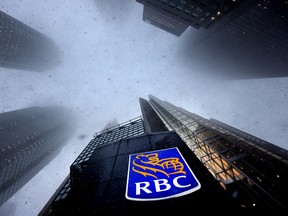
Royal Bank Reaches Deal with New York City Pensions to Disclose Clean Energy Funding
In a significant development, Royal Bank of Canada has reached an agreement with the pension plans in New York City to disclose how much financing it provides for clean-energy projects relative to fossil fuels.
This move follows a similar pact between JPMorgan Chase & Co.& and Citigroup Inc., which both agreed to the disclosures last month. The agreement is in response to shareholder resolutions filed by New York Comptroller Brad Lander and the city’s public-pension boards with six banks, including Royal Bank, in January.
The proposal was set to be voted upon at Toronto-based Royal Bank’s annual meeting next week. According to a statement from Jennifer Livingstone, Royal Bank’s vice-president of climate, the lender plans to report a clean-energy supply financing ratio in its 2024 climate report – a disclosure that "aligns to our strategic objectives."
Transparency and Advanced Disclosures on Climate Performance
"We appreciate the constructive dialogue that we have had" with Lander’s office, Livingstone said. "We plan to engage with them and industry partners in developing the ratio." The agreement marks another significant step towards increased transparency in the financial sector.
The disclosure of clean energy funding is a crucial aspect of mitigating climate change. Research has shown that banks play a critical role in financing projects related to fossil fuels, which contribute significantly to greenhouse gas emissions. In fact, researchers at BloombergNEF have been tracking the ratio of funding committed to low-carbon infrastructure relative to fossil fuels and say it needs to reach four to one by 2030 to help the world avoid the worst consequences of global warming.
The Significance of the Ratio
At the end of 2022, the global average of that ratio stood at 0.73 to 1, according to a BNEF report in December. This means that for every dollar in bank-facilitated financing of fossil fuels, 73 cents supported low-carbon energy projects. Trina White, a sustainable-finance analyst with BloombergNEF, noted in a blog post that the banks themselves have additional data on private transactions and direct lending that BNEF is unable to include in its measurements.
Progress on Green Lending
Royal Bank has recently shown progress on green lending, with plans to triple its annual financing of renewable-energy projects to $15 billion by 2030 and increase its overall low-carbon lending to $35 billion by that year. Jamie Statter, senior adviser on climate in the New York comptroller’s office, praised Royal Bank for being "initially open" to discussions around the ratio.
Long-term Thinking
New York City’s pension funds have faced criticism from conservative groups for their support of environmental, social and governance measures. However, Lander emphasized that recognizing the financial risks posed by climate change is consistent with the pension plans’ role as a long-term, universal investor.
In conclusion, the agreement between Royal Bank and New York City pensions marks an important step towards increased transparency in the financial sector. As banks continue to play a critical role in financing projects related to fossil fuels, it is essential that they prioritize clean energy funding and disclose their efforts accordingly.
Sources
Share this article
Share this Story: Royal Bank reaches deal with New York City pensions to disclose clean energy funding
Follow us on social media to stay up-to-date with the latest news and analysis.
This article is for general information purposes only and should not be considered as investment advice. Always consult a financial advisor before making any investment decisions.







